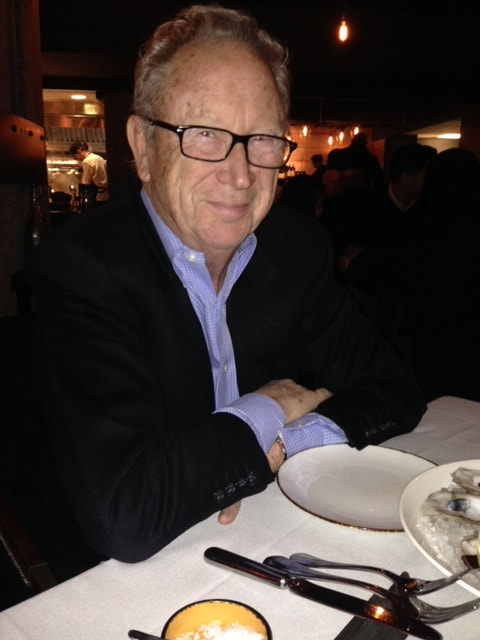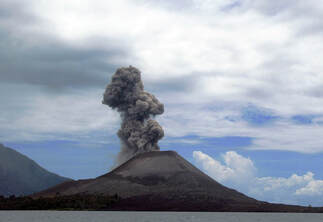 Alfred Goossens grew up in The Netherlands, where his family was always in touch with nature. This country, which is half the size of South Carolina and one of the most densely populated countries in the world, values nature and has many forests and nature reserves which were wonderlands for Alfred during his childhood. His love of nature led Alfred to get his BS degree in Tropical and Subtropical Agriculture, after which he intended to become a planter. Instead he took a job in South Africa where he became a flavor chemist (a profession that uses chemistry with a strong ability of taste and smell to create natural and artificial flavors). The company he worked for bought a company in Baltimore, which transferred him there in January 1968. “My profession as a flavor chemist was on the ‘preferred profession list’ of the U.S. government and I had my green card within several months!” he recalled. He went to work for International Flavors and Fragrances (IFF) and he and his wife went on to live in Jakarta, Amsterdam, Hong Kong, Singapore and then back to Manhattan before retiring in Madison County in 2008. He was a member of ORMN’s Class 3. “It was a great experience to continue my interest in nature that I had as a kid, my education and much of my professional life.” Alfred jumped right in to volunteer for “lots of projects” and immediately became a member of the ORMN Board as Treasurer. When and how did you become interested in nature and the natural world? “I got my love for nature from my mother,” Alfred observed. “We had a big garden filled with trees, shrubs, perennials and annuals.” The family also had a large vegetable garden, in which Alfred loved to work from an early age. “I knew the name of most of what grew there in both Dutch and Latin,” he recalled. He started his first herbarium when he was 12 years old. His post-secondary education and his profession as a flavor chemist all point to his enduring interest in the natural world. Describe what you do on your property to support a healthy ecosystem. When Alfred and his wife Valerie bought their property in the foothills of the Blue Ridge Mountains, they built their dream home. Valerie, an avid gardener, landscaped their home with both native and cultivar plants and had a large vegetable, herb and flower garden. Outside the small area around their home, however, they let nature be in control. After twelve years on this land, they decided to move to a smaller home site which they are still exploring. The area is great for nature walks “but I am dedicating most of my spare time to The Socrates Project right now,” Alfred stated. He knows that once the second edition of this seminal publication comes out, there will be time for “plenty of other projects to do that take me outside with Mother Nature.”  What is the most amazing thing you have experienced in nature? When Alfred and his wife lived in Jakarta, they had a summer home on a beach close to Sumatra. At night they could see the red cone of the volcano Anak Krakatoa, still an active volcano. He arranged for a guided tour of the volcano site with a few friends. The tour boat landed on the north side of the island, as the volcano points a bit to the south and the wind is always from north to south. Alfred remembers the advice that the guide gave them as they climbed up the mountain: “When we get an eruption, STAND STILL. DO NOT RUN,” the guide directed. He continued, “This way you can see where any rocks may fall and hopefully avoid them.” Alfred remembers that the ground was warm as they ascended. Halfway up the mountain the whole island began to shake. The volcano started blowing huge plumes of smoke and ash, which contain very dangerous gasses. “And then the guide screamed: Run!” The group made it safely to the boat and out of danger. “We saw the full power of Mother Nature – and while it was absolutely beautiful, we realized how much danger we had been in,” he stated. [Note: Shortly after this incident the Indonesian government prohibited anyone other than government employees from being on Anak Krakatoa] Tell us about the Socrates Project and how the 2nd edition will expand on the original 2018 publication. In 2013 a group of ORMN Master Naturalists started to discuss the threat and in some instances actual harm that poisonous plants were having on Virginia residents. They found that very few people were aware of the danger that that these plants posed, particularly to children. By 2015 they created the ORMN project: The Socrates Project – Poisonous Plants in Virginia. The goal of the project was to collect data on poisonous plants of Virginia and to publish the information to educate the public and lower the incidence of exposure to poisonous plants. The first printed and downloadable publication was released in March 2018. “As soon as we finished the first edition, our goal expanded to update the publication within the next two years,” Alfred explained. The publication was widely praised and a number of media articles were written on the 33-page booklet, including one by the Washington Post’s primary garden editor Adrian Higgins titled 5 toxic plants you should know – and avoid. Alfred was also interviewed by a number of news media. This media exposure helped to bring positive attention to the publication and get it disseminated widely. The team gave over 30 presentations to groups in the Central Virginia area, including other Master Naturalist chapters and local Garden Clubs. “We realized the importance of an active outreach program to the community at large,” Alfred explained. “We recognized that we had to get this booklet in the hands of as many people as possible to achieve our two goals: increased recognition of poisonous plants that could be encountered in Central Virginia and a decreased incidence of poisonings showing up in emergency rooms in the area.” When asked why a second edition was needed, Alfred responded emphatically: “There are some very seriously poisonous plants out there that still need to be brought to people’s attention,” he said. “In addition, we received a lot of input from others, including our lead medical advisor Christopher P. Holstege, MD, head of Medical Toxicology at University of Virginia School of Medicine, about plants that had not been included in the first edition which were causing many of the poisonings coming into emergency rooms that were the result of exposure to phototoxic plants as well as an increase in people foraging during the COVID10 pandemic.” Alfred shared an awe-inspiring situation where the team was able to use its knowledge to help Dr. Holstege: “A farmer was brought into the ER and diagnosed with food poisoning. He was only able to describe what he had eaten as tuberous roots that looked like yams. No one in the hospital knew what it could have been. Dr. Holstege contacted me for help – and I put out the word to the team along with several other knowledgeable ORMN members. We asked if there were any pictures of leaves, stalks, stems, flowers, fruits (berries) or roots of the plant that the patient ate. Within two hours we had pictures of various parts of the plant, which were posted immediately to the Socrates team. Within minutes we had a few positive IDs of the same plant – pokeweed – which was immediately report to Dr. Holstege. Now the medical staff at the ER knew how to treat this patient.” Alfred shared that the doctor later emailed him, saying “I want you to know that your team saved a man’s life today.” Alfred is most pleased with the high degree of peer review to which both editions of this publication were subjected. “Our peer review team set a very high bar on the information included about each plant,” he declared. “Having professionals with knowledge and expertise in medical toxicology, botany, wildlife resources, and the Master Naturalist program increased the accuracy and relevance of the information enormously.” The second edition is scheduled to come out in January. See article about the 2nd edition on the ORMN website here . posted] And what’s next for the project? “We’re working on that right now,” Alfred said with a smile. “Stay tuned!” Interviewed by Charlene Uhl, January 2021 |
AuthorWrite something about yourself. No need to be fancy, just an overview. Archives
December 2023
Categories
All
|
 RSS Feed
RSS Feed